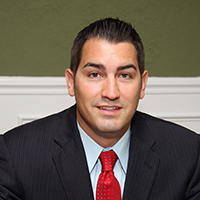Saint Johns Bankruptcy Lawyer, Pennsylvania
Sponsored Law Firm
-
 x
x

Click For More Info:
-
Newman Williams, P.C.
712 Monroe St P.O. Box 511 Stroudsburg, PA 18360» view mapBankruptcy & Debt A Legacy Of Solving Clients' Problems
We are proud to uphold a decades-long tradition of serving clients with courtesy, honesty and integrity. We have been here for you, and we will continue assistance into the future.
570-421-9090
Includes: Bankruptcy Litigation, Commercial Bankruptcy, Consumer Bankruptcy, Dissolution
Jason Michael Rapa
✓ VERIFIEDCriminal, Credit & Debt, Personal Injury, Bankruptcy, Car Accident
Jason M. Rapa, Esquire, is a lawyer licensed and admitted to practice law in the State of Pennsylvania and before all three Pennsylvania Federal Court... (more)
FREE CONSULTATION
CONTACTJoseph Richard Baranko
Administrative Law, Bankruptcy, Personal Injury, Accident & Injury
Status: In Good Standing Licensed: 41 Years
Jonathan Kuhar
Power of Attorney, Commercial Real Estate, Wills, Consumer Bankruptcy, Living Wills
Status: In Good Standing Licensed: 15 Years
Christy Marie Demelfi
Business, Bankruptcy, Bankruptcy & Debt
Status: In Good Standing Licensed: 17 Years
Loralee Anne Choman
Health Care, Government, Divorce & Family Law, Bankruptcy
Status: In Good Standing Licensed: 36 Years
Kevin Tanribilir
Real Estate, Defect and Lemon Law, Estate, Bankruptcy, Accident & Injury
Status: In Good Standing Licensed: 28 Years
Mark Joseph Conway
Real Estate, Business, Bankruptcy, Bankruptcy & Debt
Status: In Good Standing Licensed: 34 Years
 Vincent Rubino Stroudsburg, PA
Vincent Rubino Stroudsburg, PA Practice AreasExpertise
Practice AreasExpertise

